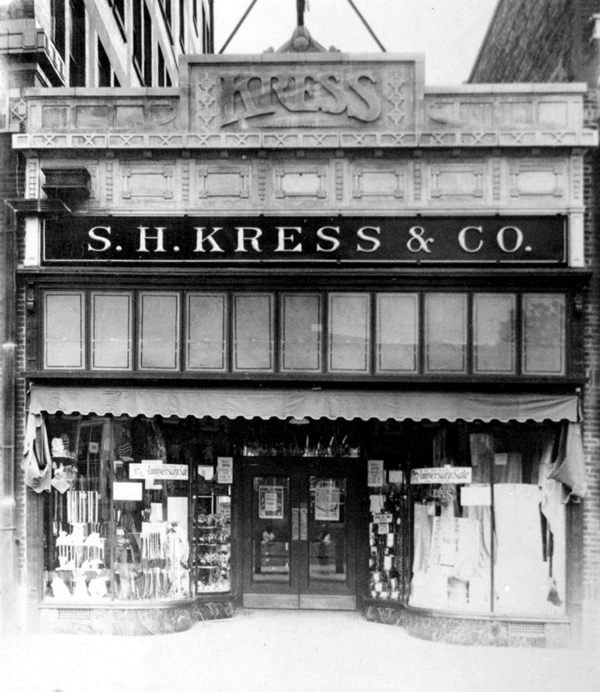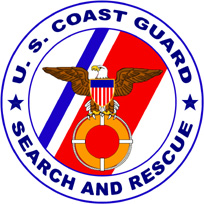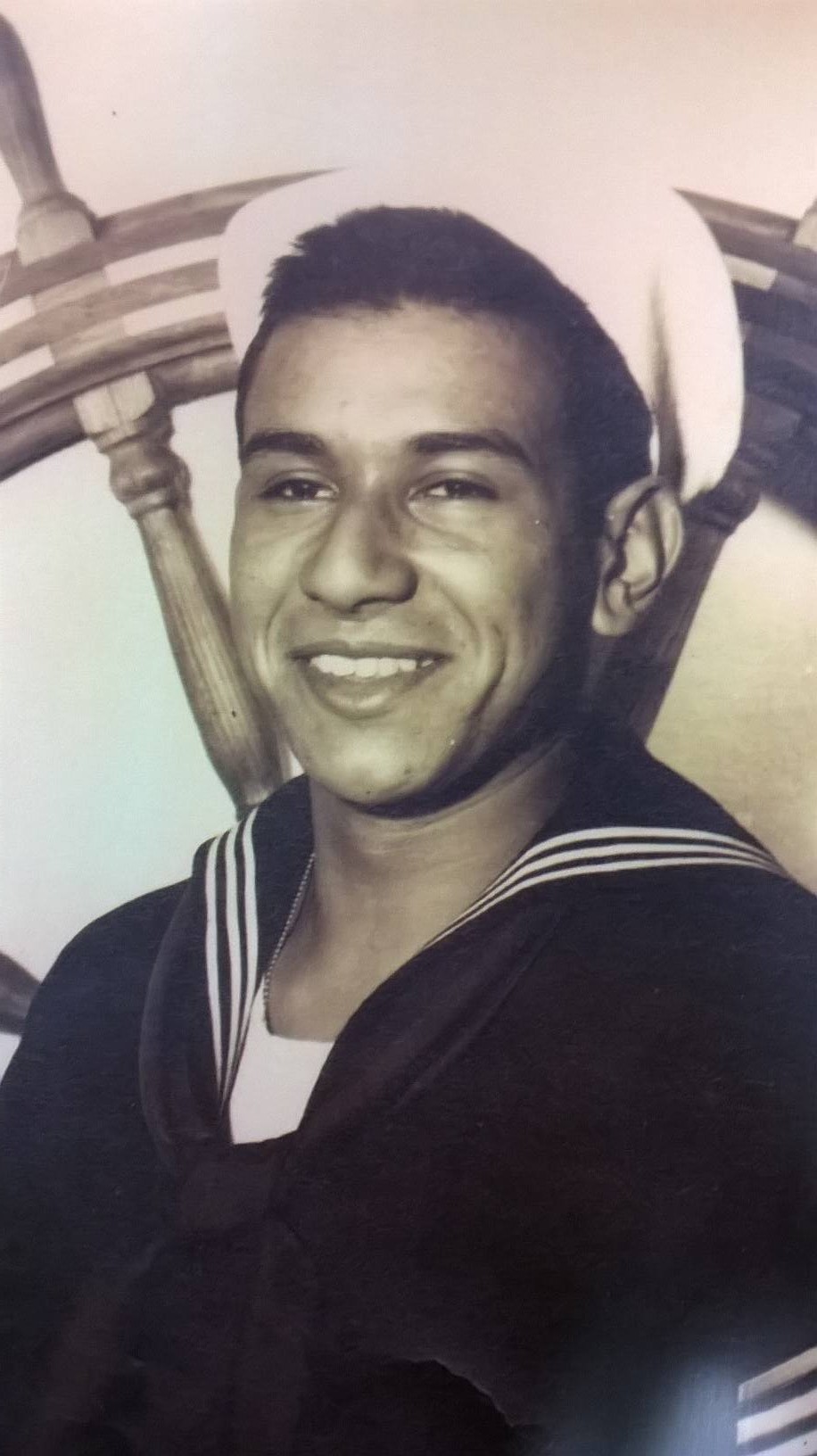TRANSCRIPTION
What is your earliest childhood memory growing up here in San Antonio?
Let's see...Mule drawn wagons, plows, and cultivators, kerosene lamps, wood stoves and pot belly wood burning heaters and out-houses. Everybody had at least one.
Do you remember where you were born? Where were your parents from?
Yes. I was born November 02, 1939 in Bexar County, Texas. My father was born February 11, 1911 in Von Ormy, Texas, and my mother was born July 07,1916 in Bexar County, Texas
Describe a typical day for you as a child. What did you and your siblings do for fun?
Um...Playing marbles mostly. My brothers and sisters and I would play cops and robbers, Cowboys and Indians, hide and seek. I remember learning to read comic books in English and hanging around with Grandpa Santiago, Uncle Francisco and Aunt Francisca. They were our baby sitters where I learned to read in Spanish while Mom and Pop went to work. Don't recall much interaction with my brother and sisters.
What were living conditions like for you and your family? Did you have electricity? Running water? Indoor plumbing?
We had limited electricity back around 1942. Well water was stored in 55 gallon drums and later piped into our house by a jack pump into a pressurized steel tank that was then distributed to other buildings. Around the same time Grandpa established a grocery store. It was a gas station that sold bulk oil and fixed flat tires. And later Pop opened a small Cantina (beer parlor) named the Farmer's Cafe, but I'm not sure why he named it that. I don't know why. It served only Bohemian Beer and Virginia Dare wine. Soon after he added food plus a pool parlor and dance hall that soon became a party house. It later became known locally as Jesse's Place, then Lopez Place which sponsored two Baseball teams. A softball and the other hardball.
What was San Antonio like in the 1940's and 1950's?
Life in South Bexar County...Let's see. It was a small village named Thelma, Texas. It thrived on local farmers and dairymen. One could always make a buck or two to buy cookies, candy, and sodas. And maybe enough to get into the movies in San Antonio. The 1940s were not so bad, a laid-back community where every one knew their neighbors. The 1950s not so well. There was a drought that forced all farmers to give it up and go to work in town. Mostly at Kelley A.F.B and their children moved into San Antonio where basic amenities were available: flush toilets, potable water and bath tubs. I too went to work in town in 1954 at S.H Kress & Co. as a stock boy.

Growing up, what was school like for you? Did you ever experience any discrimination?
I loved school. The Thelma Elementary years were fun. It always began with assembly, the Lord's Prayer and pledge of allegiance, followed by roll call and calisthenics. Three grades in one class room and one teacher. Ms. Cora Watson. A no nonsense person dedicated to teaching. I had some advantage having learned to read and write before starting school. During school break we were sent to Bible study at Villa Del Carmel Church during recess we would play softball. After that it was back to class.
What was the most challenging thing you faced growing up?
The biggest challenge was making money. Making money was the biggest challenge at the time. Some places you'd work all day for a buck or two, and some places you'd work and they wouldn't even pay you.
What did you value most back then?
God the Father, Jesus Christ, my Faith, Who gave me the tools to survive all things good and bad, the love and support of my family and friends although they were far removed from my home for more than 3 decades. I learned to endure. I value education. It is a lifelong experience, essential in this high tech world of the 21st century.
Have those values changed or shifted over time? If so, to what?
No, they haven't.
What expectations did you have upon entering the Coast Guard?
A structured environment, security, 3 meals and quarter for living in were pretty much all I'd thought about. Oh, and training and travel.

What did you like or dislike about the service? Did anything interesting happen while you were stationed overseas?
I loved the service, but I got reprimanded for fighting the second time and landed in the Marine Brig (jail) for psychiatric evaluation where I was asked if I was looking for a section 8, a way to get out of service. I immediately replied no, so he asked me "Why do you get into these altercations?" I told him we all had been drinking to much bourbon and that I was truly sorry but wanted to remain in the service. I was punished under the UCMJ, lost one month of pay and was restricted to base for 30 days. I was not awarded a good conduct medal which is essential when competing for advancement in rank. I never could rank up after that. When competing I was excluded every time and that was my reason for not reenlisting.
What was it like working for the U.S. Coast Guard Search and Rescue Coordination Center in New York?
In 1956 I joined the U.S. Coast Guard. My basic training was in Cape May N.J. After graduation it was on to Alameda California for MATS flight to Hawaii. Ultimately I served in the South Pacific Marianas Islands (Guam.) I came back in October of '58 and was assigned to the USCG Search and Rescue Coordination Center located in Manhattan NYC at the old U.S. Customs House. My duties ranged from offset printing to armed courier for liaison purposes between federal agencies. Other duties included plotting ships in route to maritime disasters and translated distress calls from Spanish to English. Dress code for me during this assignment was civilian clothes in public. I was honorably discharged in 1960 after four years active duty and moved to the inactive reserves until November of 1962. Ironically my first full time job was with S.H. Kress & Co. printing department at the corporate office on 5th avenue NYC. As a former employee I was given preference for the position available.
What was your first impression of the woman who would become your wife? Would you like to share some memories of her?
Ah! That brunette with piercing green eyes captured my heart and soul at first glance. I met her at a dance party sponsored by the Soldiers, Sailors, and Airmen Club where we danced the night away. After the party over she asked if I would escort her to Bellevue hospital where she was a student nurse with a curfew. She gave me kiss on the cheek and said "You may call me tomorrow if you wish." and handed me her business card with her telephone number and said good night. She was a dedicated student intent on graduating in the fall of 1961. She became a licensed Professional Nurse in the State of New York. Her graduation took place in NYC and her parents lived in Glendale, Queens so they could not make it there. I took time off from work to be there. She didn't know I was going to be there for sure so when she finally saw me she smiled and blew me a kiss. We had an understanding that we would talk about getting married after graduation. So I went to a jeweler near Wall St. close to work and bought an engagement ring. I called her parents and asked for her hand in Blessed Sacrament of Holy Matrimony and would we have their Blessing should she say yes that evening to my proposal of marriage. I told them I bought the ring to make it official. Thankfully they said yes. Unable to wait to propose I did in the subway tunnel of the 14th St. Canargie Line to Brooklyn from Manhattan. I gave her the ring, put it on her finger, and at that moment she started to cry. I asked her what what was wrong and she said "You fool, of course I'll marry you!" When I got to her house, her mother said to me "When we marry in this family, we marry for keeps." At the church, after we were married, she came right up into my face and said "You understand that you're a bum now. Don't you ever leave her in the streets if you get tired of her. If you get tired of her, bring her back to me." And everyone was staring at us.

Is there anything else you'd like to share with me?
I have a lot of stories to share, but they will have to be continued at a later time otherwise you'll be sittin' here for another year or so.
ANALYSIS
Completing this oral history project left me with an even greater respect for my grandfather. I've been very close to him all my life but I learned new things from asking questions I never would have thought to ask. My grandfather is the kind of man who will sit down over a cup of coffee after complaining that he can't find his dentures and talk until he can't talk anymore. He is definitely a story-teller. In spite of dropping out of school after the 9th grade, he's done well in his life and he has no regrets about anything. He's always had a "can-do" spirit that I admire.
Growing up in San Antonio afforded me opportunities that my grandfather didn't have -- like being able to go to school instead of having to find a job for money. Having clean running water is another. I feel like times have definitely changed and there is so much here now instead of the dirt roads and widespread dairy farms my grandfather grew up around. My grandfather's six word memoir was "Did almost everything with almost nothing." and I know it is a view he carries with him to this day. Even now, it is something he lives rather than simply believes.
Talking about my grandmother brought up emotions that were hard for him to handle. They were married for 50 years before she passed away in 2010. He smiled as he spoke about his proposal and their wedding day and cried a little after the interview. He spoke about how empty the house felt without her. I feel like this project is a great way to learn about the past because you're speaking with someone who actually lived there. I enjoyed interviewing my grandfather and I know that he enjoyed it as well because he loves to talk.
TIMELINE
- Born November 2, 1939 in San Antonio, Texas (Dia de los Muertos)
- Brother Jose de Jesus AKA Jesse born in 1937
- Sister Bertha born in 1942
- Sister Beatrice born in 1944
- Brother Edward born in 1948
- Brother Jose Luis born in 1950
- Left school in the 9th grade to work full-time on dairy farms, doing other odd jobs like picking squash, okra, watermelons
- Lied about age and joined the U.S. Coast Guard at 17 in 1956
- Training in Coast Guard Receiving Center, Cape May, N.J. In 1956
- First PCS to Guam, the Marianas Islands in 1957 (watched Sputnik satellite over head)
- Assigned to U.S. Coast Guard Search and Rescue Coordination Center in New York at the U.S Customs House, October 1958.
- Discharged from service after contract expired, 1960.
- Married Lois Schmidt, 1962
- Moved into first house together in Lake Ronkonkoma, 1963.
- First son, Martin was born June 15, 1963
- Daughter, Nancy was born February 20, 1965
- Second son, Andrew was born August 20, 1972
- Moved to San Antonio, Texas in 1988
- Worked as an offset printer (skill learned in Coast Guard) in private business until his wife became sick (1988-1993)
- Elected to Southside ISD School Board, 1995
- Elected to serve in Bexar-Met Water District, 1995
- Elected to serve in Canyon Regional Water Authority, 1995
- Chairman of Thelma Area Neighborhood Coorporation, 1995
- Heart attack in 2003, retired from political career in 2004
- Mostly home-bound from 2004 – present
- Wife Lois passed away in 2010.
- Currently a DIY repairman/carpenter for his own house, chain-smoker, sounding board for advice, and lover of music from the 60's and 70's
Return to Oral History Projects

